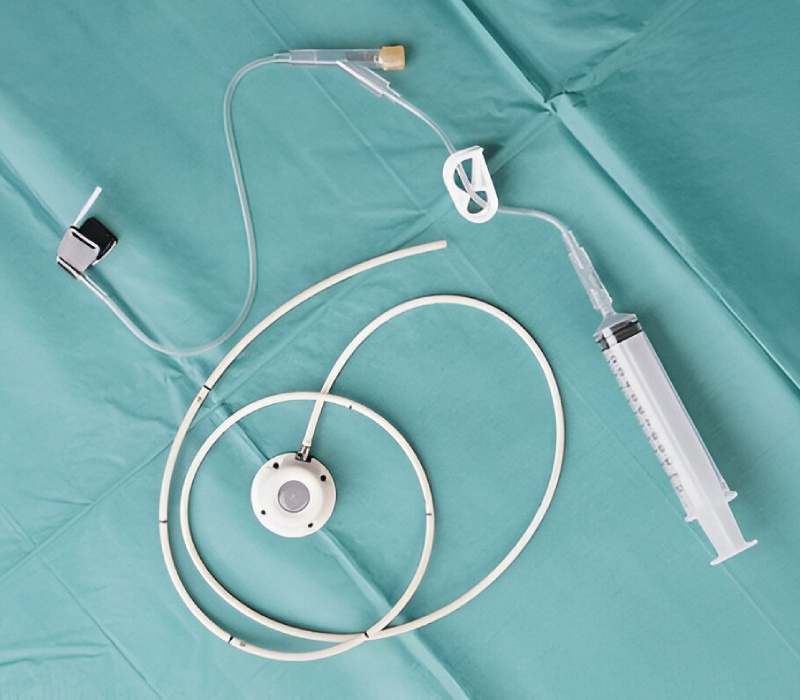Surgical Oncology in India
Surgical Oncology Procedures
Benefits of Surgical Oncology
Robotic Surgery Techniques
Surgical Oncology treatment at Thangam
Surgical Oncology
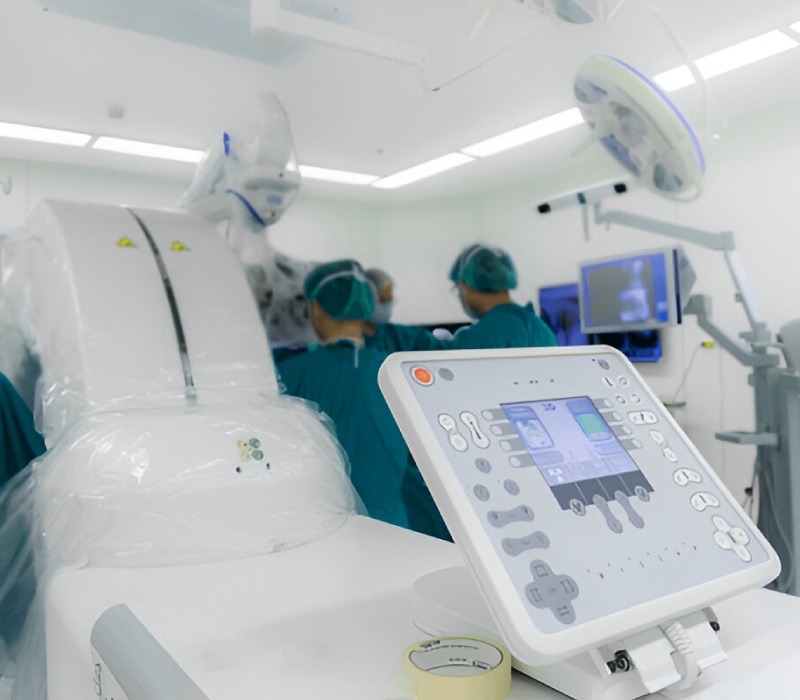
Precision-driven, minimally invasive, patient-centered cancer surgery
At Thangam Hospital, our Surgical Oncology program is built on expertise, innovation, and a deep commitment to patient recovery. From complex resections to organ-sparing procedures, our multidisciplinary team of expert surgeons, anesthesiologists, oncologists, and rehabilitation specialists work in perfect sync to deliver world-class cancer surgery
Our Expertise in Cancer Surgery
We handle some of the most challenging and intricate surgeries with a focus on:
- Head & Neck cancer resections and reconstructions
- Liver, pancreatic, and biliary surgeries
- Minimally invasive and robotic-assisted procedures
- Limb-preserving surgeries for bone and soft tissue tumors
- Microsurgical reconstructions
- Pelvic and abdominal tumor excisions
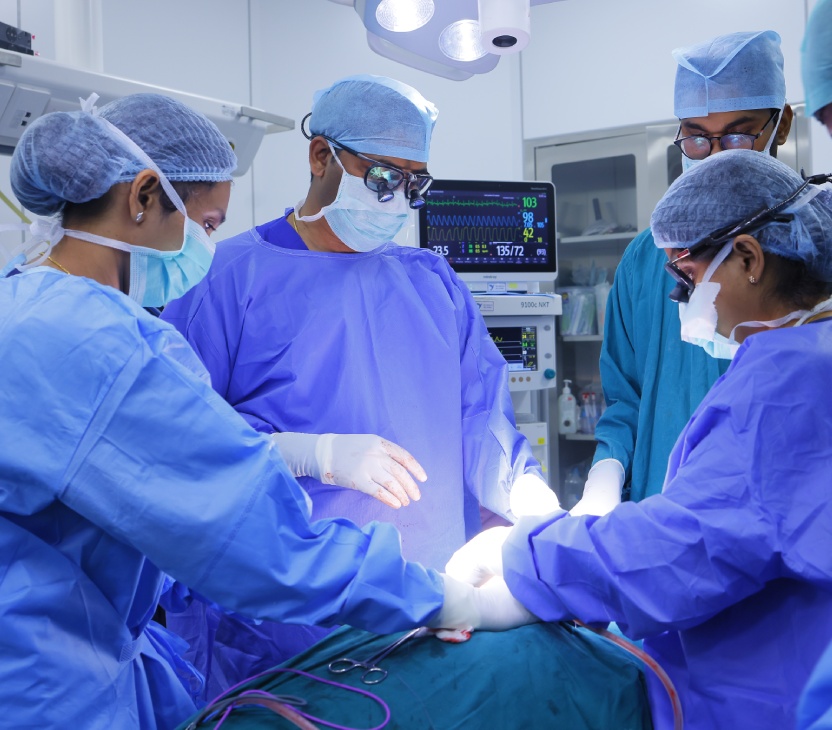
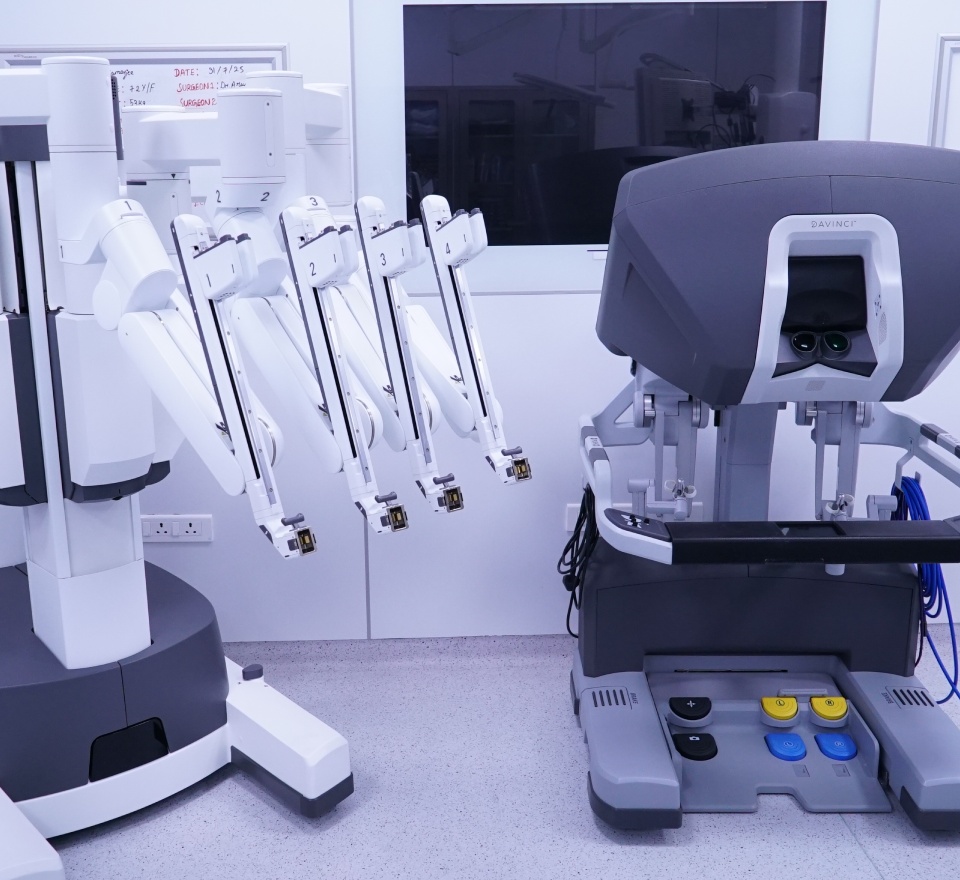
Robotic Surgery
At Thangam Cancer Center, robotic surgery represents the future of precision oncology. Using next-generation platforms, including the da Vinci Surgical System, we deliver unparalleled accuracy in complex cancer operations.
Advantages of Robotic Surgery:
- 10x magnified, 3D high-definition views
- Tremor-free surgical precision
- Minimal incisions for reduced pain and faster healing
- Enhanced access for deep pelvic, urologic, and gynecologic tumors
- Lower complication rates and shorter recovery times
Robotic technology allows our surgeons to combine expertise with innovation—ensuring safer procedures and better outcomes for patients.
Minimally Invasive Surgery
Our minimally invasive cancer surgery program is designed to maximize patient recovery without compromising oncologic safety.
Benefits include:
- Small incisions = less pain, bleeding, and scarring
- Faster return to daily life with shorter hospital stays
- Lower risk of infection and post-surgical complications
- Highly suitable for gastrointestinal, thoracic, gynecological, and urologic cancers
Specialized scopes, advanced energy devices, and integrated imaging systems allow for delicate tumor resections with exceptional precision. Minimally invasive surgery ensures safety, technology, and patient comfort.

Innovative Surgical Technologies

Oncoplastic Breast Surgery
We combine tumor removal with aesthetic reconstruction in one procedure—preserving breast shape, symmetry, and patient confidence.
Techniques we offer:
- Breast-conserving surgery with reshaping
- Therapeutic mammoplasty
- Nipple-sparing mastectomies
- Contralateral breast symmetry procedures

Fluorescence-Guided Surgery (FGS)
Using real-time fluorescent imaging, our surgeons achieve enhanced tumor visibility and safer margin clearance.

Surgical Microscopy Integration
Advanced microscopes with integrated imaging systems guide our team in microsurgical procedures—ensuring unmatched precision and safety.
Complex Visceral Surgery
We are one of the few high-volume centers equipped for complex visceral oncologic surgery, offering outcomes matched to global standards.
Our team specializes in:
- Multi-organ resections of the liver, pancreas, stomach, intestines, and retroperitoneum
- Surgical solutions for advanced, large, or recurrent tumors
- Multi-disciplinary planning with intensive care support
- Reconstruction procedures when organ continuity must be restored
Complex visceral surgery is designed for patients with difficult abdominal cancers—performed with utmost care to achieve control, survival, and optimal quality of life.

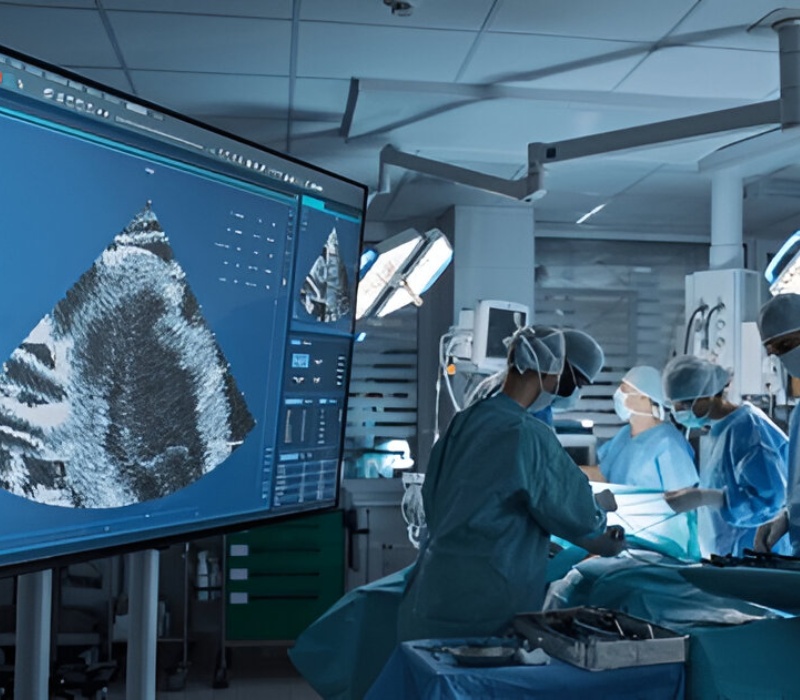
Navigational Surgery
At Thangam, we embrace innovative surgical navigation technologies that integrate radiology, surgical planning, and intraoperative guidance for unmatched safety.
- Fluorescence-Guided Surgery (FGS): Real-time fluorescent imaging enhances visualization of tumors and margins, improving clearance.
- Surgical Microscopy Integration: High-resolution surgical microscopes combined with advanced imaging systems give surgeons the ability to preserve vital structures with microsurgical precision.
- Navigational systems ensure accurate tumor localization, especially for hard-to-access anatomical sites.
This fusion of technology and surgical expertise enables safer, more organ-preserving surgery for our patients.
Organ Preserving Surgery
Wherever possible, we prioritize preservation of natural tissues and organ function—balancing cure with quality of life.
- Breast-preserving approaches: Breast-conserving surgery, therapeutic mammoplasty, nipple-sparing mastectomy techniques
- Rectum-protective resections: Restorative rectal surgeries designed to maintain continence and function
- Limb and soft tissue preservation: Tumor removal while maintaining musculoskeletal integrity and mobility


Oncoplastic Breast Surgery
Our oncoplastic program uniquely combines tumor removal with cosmetic reconstruction in the same procedure. This ensures oncologic safety without compromising breast aesthetics.
- Integration of cancer clearance + breast reshaping
- Symmetry procedures for the opposite breast when needed
- Preservation of femininity, confidence, and self-image post-treatment
Microvascular Surgery
At Thangam, our Microvascular & Super-Microsurgical Program provides highly advanced reconstructions for cancer patients.
Treatment Modalities include:
- Free flap transfers using super-microsurgical precision (vessels <0.8 mm)
- Reconstructive options after head & neck, breast, limb, and abdominal surgeries
- Restoring both form and function after tumor excisions
- Functional reconstruction for swallowing, speech, and limb mobility preservation
Microvascular surgery enables us to perform complex reconstructions that restore not only appearance, but also essential daily functions—helping patients return to life with confidence.
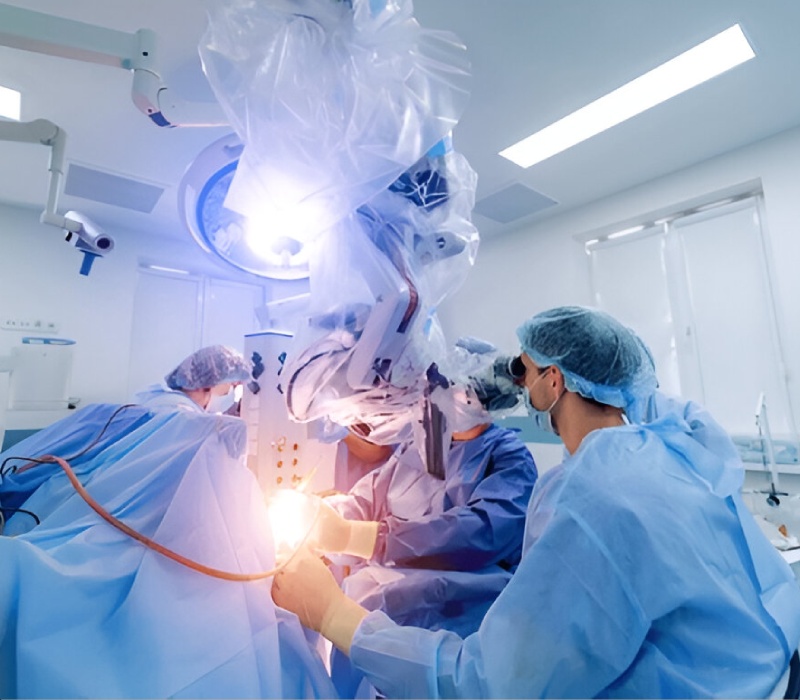

Cytoreductive Surgery
Cytoreductive surgery is a highly specialized cancer surgery focused on reducing visible tumor burden in advanced-stage cancers. By removing as much tumor tissue as possible within the abdomen, we can significantly extend survival and improve response to additional therapies.
Applications include:
- Ovarian cancer with widespread abdominal deposits
- Peritoneal carcinomatosis from colorectal or appendiceal cancers
- Selected sarcomas with regional peritoneal spread
Often performed in combination with HIPEC, cytoreductive surgery is done with meticulous planning and execution by our multidisciplinary oncology team.
HIPEC (Hyperthermic Intraperitoneal Chemotherapy)
For certain abdominal cancers, HIPEC combines surgical tumor removal with heated chemotherapy circulated inside the abdominal cavity. This direct, high-dose exposure increases effectiveness while lowering systemic toxicity.
Most effective in:
- Advanced colorectal cancers
- Ovarian cancers
- Pseudomyxoma peritonei
- Peritoneal mesothelioma
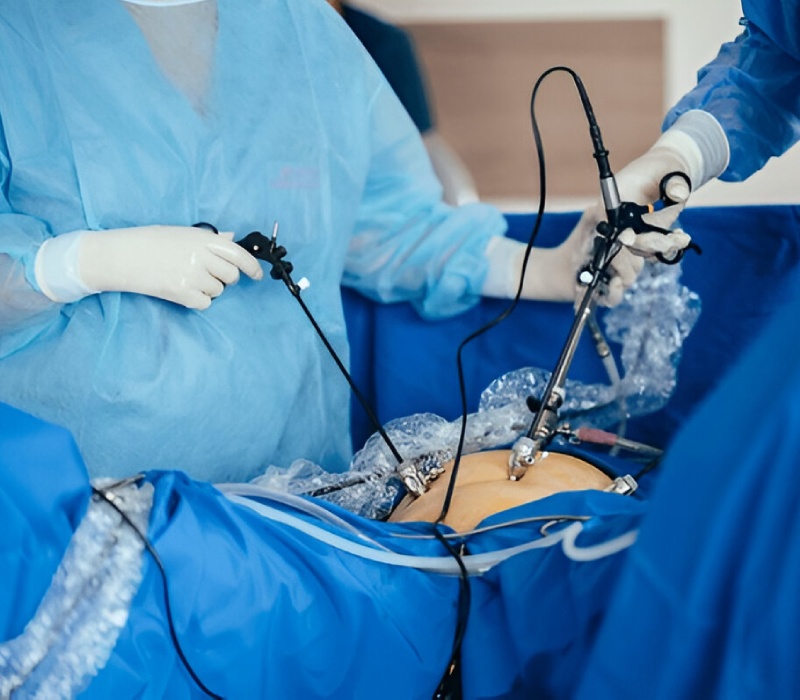
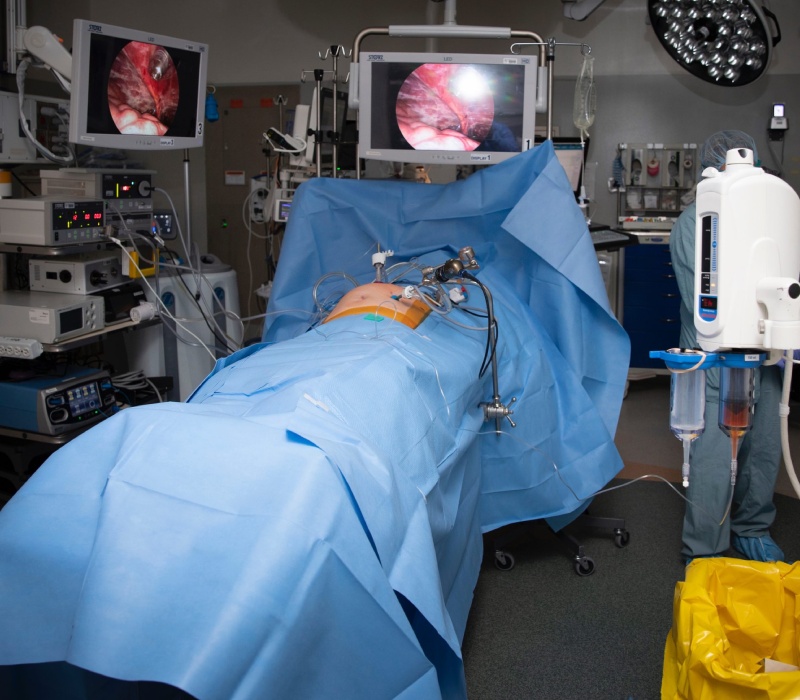
PIPAC (Pressurized Intraperitoneal Aerosol Chemotherapy)
Suitable for patients with recurrent or unresectable peritoneal cancers, PIPAC delivers chemotherapy as a fine aerosol mist, under controlled pressure, through a minimally invasive laparoscopic approach.
- Repeatable with low side effects
- Enhances penetration into tumor nodules
- Preserves patient quality of life while extending treatment opportunities
HITOC (Hyperthermic Intrathoracic Chemotherapy)
For malignant pleural mesothelioma or lung metastases involving the pleural cavity, HITOC is a promising surgical innovation.
- Performed after resection or decortication of visible disease
- Heated chemotherapy solution is circulated within the chest cavity
- Targets microscopic residual disease while preserving lung function
- Shown to improve long-term control and survival in select cases
At Thangam, HITOC is integrated into a multimodality approach for thoracic cancers—combining surgery, systemic therapy, and precision care.
